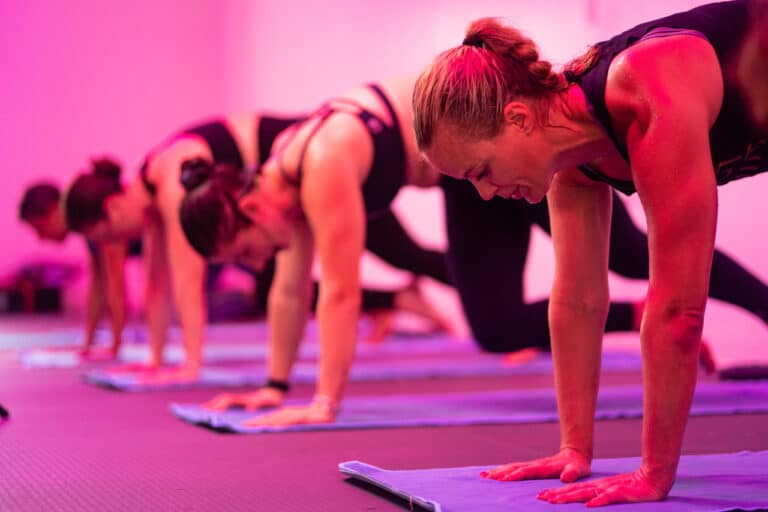WHETHER YOUR CHILD IS STARTING A NEW SCHOOL OR SIMPLY HEADING INTO A NEW GRADE, HERE’S HOW TO ENSURE IT GOES SMOOTHLY.
While so much has changed this calendar year, there are some things about school that haven’t—namely, the transition students will be making to new schools and new grades.
“For children, transition is a natural part of all educational programs; adjusting to changes in teachers, classmates, schedules, buildings and routines happens throughout their time in school,” explains Trudy Davis, head of the Greenwich Country Day School Lower School in Greenwich, CT. In addition to positive feelings these changes may bring, such as feeling more grown up or enjoying new responsibilities, these transitions can also bring anxiety and stress for children. She adds, “It is important to try to address any anxieties before school starts in order to help them to thrive socially, emotionally and academically.”
The good news? “With careful planning and patience, children can manage these transitions and at the same time, learn skills and develop mindsets that benefit them in other areas of their life,” says Davis. Here, we tapped a few education experts to offer tips on how to make the process easier at every grade level.
ELEMENTARY SCHOOL
Acknowledge their feelings
Start by acknowledging that change can be tough on kids, says Jackie Jenkins, the assistant head of school at Greenwich Country Day School and head of the Upper Elementary School. “Telling a child ‘you’ll love it’ does not help them ‘love it,’” she advises. “Honoring the space where your child is on the transition journey is key to a smooth start.” If they’re feeling nervous, explain that it’s normal—and that you’re also nervous about finding friends within the school community, she says. On the flip side, if they’re excited, encourage and foster those feelings. “Teaching children to recognize and name their emotions through this journey will help set them up for success not only during this transition, but also during times of change in the future—and this moment in history is surely showing us the need to be fluid and flexible,” says Jenkins.
One way to facilitate that? “Reading a book is a good way to start a conversation with your child about how they are feeling about the start of the school year,” recommends Jane Verlin, interim head of Lower School at Green Farms Academy in Westport, CT. “It also allows your child to see that it’s OK to feel nervous.” She loves First Day Jitters by Julie Danneberg. Although it may be tough, try to keep your own emotions in check, experts advise. “Children, especially young children, look to their parents for social cues. Be casual and cheerful,” advises Dr. Jessica McGibbon, head of Lower School at Sacred
Heart Greenwich in Greenwich.

Dealing with Covid-19
No matter what happens this year, there are things you can do to help your child. “Both at home and at school, it is important to ensure that students have routines and rituals, which provide a sense of normalcy for them,” explains Trudy Davis of Greenwich Country Day School. At GCDS for example, they will have their homeroom morning meeting every day, regardless of whether students are in class, learning remotely, or doing a hybrid, she says. Experts also agree having a separate work area is smart. “Setting up a remote learning space before the year begins will help with the fluid transition if we shift in that direction,” says Jenkins. “If we do not, this space can be used for daily homework, allowing the child to begin seeing this dedicated space as their ‘office.’”
MIDDLE SCHOOL
Applaud small wins; let them be kids
“We encourage parents to do what they can to reduce the pressure their daughter might feel during this transition by de-emphasizing academic performance or social success and instead focusing on small accomplishments,” says Becky Walker, head of Middle School at Greenwich Academy in Greenwich. For example, applaud your child for asking a question during class, or bringing home all the right books, she advises.
And, while you might be focused on the academic portion of their new school or grade, your middle schooler may be more focused on the social realities. “For many adolescents, this comes with feelings of anxiety, insecurity, fear, etc., which are emotions their brains are not yet capable of gracefully regulating—at least not on a consistent basis,” explains Flynn Corson, head of the Greenwich Country Day School Middle School. “As a result, the best way to validate their preoccupations is by avoiding the impulse to minimize them, while you simultaneously encourage your child to take stock of the full scope of the awaiting opportunities in their new school, and not just where they’ll fall in the middle school social hierarchy.”
And don’t forget to let middle schoolers act like kids, says Joshua Deitch, head of the Middle School at King School in Stamford, CT. “I think sometimes we expect more of them and treat them as they should be older and have more responsibility without necessarily allowing them to experience play and fun, and allowing them to still be those creative and energetic and excitable young people that they should be,” he says.
“TEACHING CHILDREN TO RECOGNIZE AND NAME THEIR EMOTIONS THROUGH THIS JOURNEY WILL HELP SET THEM UP FOR SUCCESS NOT ONLY DURING THIS TRANSITION, BUT DURING TIMES OF CHANGE IN THE FUTURE—AND THIS MOMENT IN HISTORY IS SURELY SHOWING US THE NEED TO BE FLUID AND FLEXIBLE.”
Jacqueline Jenkins, Greenwich Country Day School
HIGH SCHOOL
Teach them to ask for help
“As high school students transition, in that first year especially, the work may increase, and even if it doesn’t, by its nature, it will require increasing independence and independent thinking,” explains Margaret Frazier, head of school at Sacred Heart Greenwich. “The most important attitude/approach a parent can take is to encourage the student to ask for help—can a teacher/advisor/peer be helpful? What can the student do to figure it out for herself?” she explains.
And though the focus might be on college prep, that’s only part of the equation, offers Chris Winters, head of the Greenwich Country Day School Upper School. The goal is to turn students from compliant learners to engaged learners— “those who find inherent value in areas of study,” he explains. His advice for parents? “Oftentimes, the best help parents can offer is to assure their child that they believe in them and that they are there to support them. Many teens feel judged just by [parents] asking them how school was that day, so ‘helping’ is a tricky task. Showing interest in what a student is studying might nudge the child to open up more about her ability to manage the workload.”
Navigating a New School
Starting at a new school this year? Get involved, say experts. “Social media can actually be really helpful from the parents’ side of things,” advises Deitch, who suggests things like a town or school Facebook group to set up playdates for younger kids. Verlin also suggests visiting the school grounds to ride bikes or go to the playground to help kids feel safe there. For older kids, Deitch recommends activities like pre-season sports or a summer drama program, where kids can meet other students and get acclimated to the school grounds. Some schools also offer more formal programs for new students—something Deitch suggests asking about. For instance, at Greenwich Academy, a current “host family” acts as a mentor to a new middle school family, and Sacred Heart has a Peer Leaders program, where older students act as “big sisters” to new ones. And one small upside of this unprecedented time: “Since everyone has been away from traditional school since March, being new won’t be so hard—everyone will be adjusting to new rules, new spaces, new protocols and new approaches,” says Frazier.




